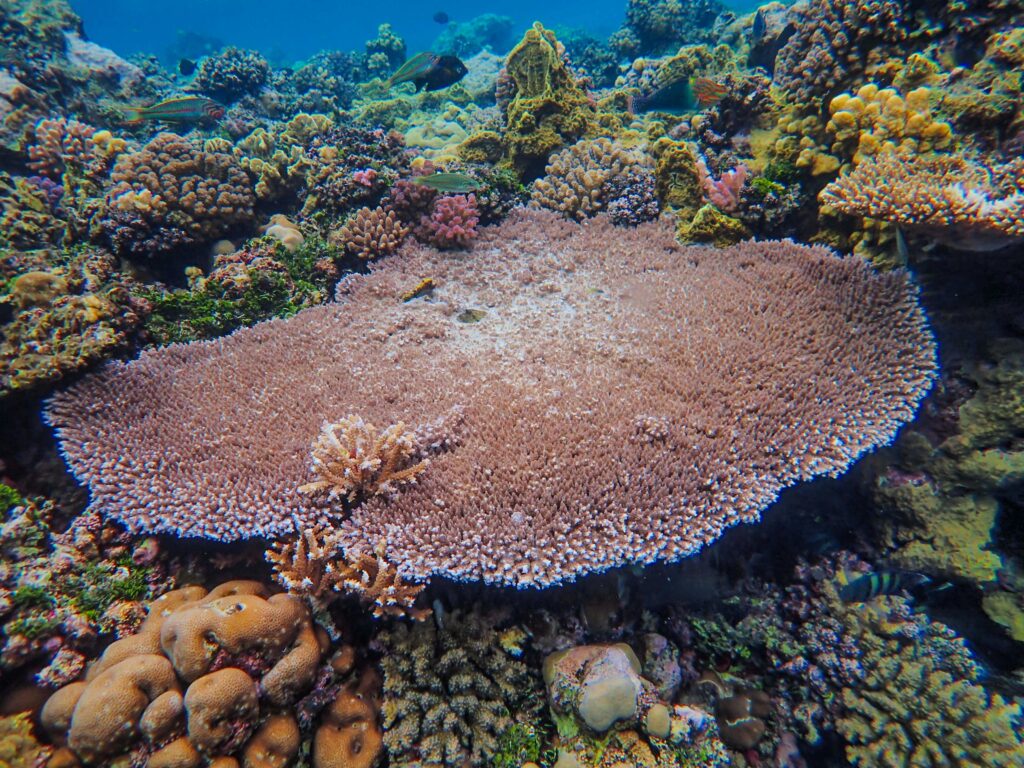Ocean ecosystems are incredibly complex, with marine food webs playing a crucial role in maintaining the balance of life beneath the waves. As the oceans absorb more carbon dioxide (CO2) from the atmosphere due to climate change, they are undergoing significant chemical changes. One of the major changes is the increase in ocean alkalinity, which could have profound effects on marine food webs. So, how exactly do marine food webs respond to these shifts in alkalinity?

What Is Ocean Alkalinity?
Ocean alkalinity refers to the water’s ability to neutralize acids. As CO2 levels rise in the atmosphere, a portion of that CO2 dissolves in seawater, creating carbonic acid. This process decreases the pH of the water, a phenomenon known as ocean acidification. Alkalinity helps buffer this acidification, maintaining a more neutral pH that supports the survival of many marine species.
While increasing alkalinity could help protect certain marine organisms, the overall response of marine ecosystems is much more complex. Studies on ocean alkalinity enhancement, which involves artificially raising the alkalinity of seawater, show potential for reducing the negative impacts of acidification. But what does this mean for marine food webs?
Impact on Marine Organisms
Marine food webs start with phytoplankton, tiny organisms that produce energy through photosynthesis and are the foundation of most marine food chains. These plankton, including crucial species like coccolithophores, rely on calcium carbonate to form their shells. In acidic waters, the availability of calcium carbonate decreases, making it harder for these organisms to survive. But with increased alkalinity, calcium carbonate availability improves, which may allow these organisms to thrive and, in turn, support higher trophic levels.
However, this isn’t as simple as it seems. While raising alkalinity might help some marine species, others could be negatively affected. Certain types of plankton and marine life could experience unpredictable consequences, especially if the introduction of alkalinity happens too quickly or at too large a scale. The balance between benefiting some species while potentially harming others is a crucial consideration for ocean science moving forward.
Potential Benefits and Risks
By enhancing ocean alkalinity, researchers hope to mitigate some of the damaging effects of ocean acidification. For example, corals that rely on calcium carbonate to build their skeletons might benefit from increased alkalinity. Additionally, fish species that rely on plankton for food could see increased availability of their prey, resulting in positive effects on local ecosystems.
On the other hand, the manipulation of alkalinity could disrupt the natural balance of ocean chemistry. Phytoplankton play a crucial role in the marine food web and in the global carbon cycle. If ocean alkalinity enhancement significantly alters the growth or composition of these plankton populations, it could create cascading effects throughout the food web, potentially reducing food availability for fish and other marine life.
The Research and Future of Alkalinity Enhancement
Scientists are still exploring the impacts of increasing ocean alkalinity. While early studies show promise, the complexity of marine ecosystems means that any changes must be approached with caution. For example, large-scale alkalinity enhancement could disrupt natural patterns of nutrient cycling or alter the abundance of certain species.
Moreover, long-term effects on marine biodiversity and ecosystem health are still largely unknown. More research is needed to understand how such interventions would play out over decades or centuries, and whether they could be scaled up safely and effectively.
The response of marine food webs to increasing alkalinity is a critical area of research in the face of climate change. While enhancing alkalinity could potentially reduce the harmful effects of ocean acidification, it’s essential to consider the broader implications for marine life. Scientists are carefully monitoring how these changes impact marine organisms and their interactions within the food web, with the hope that such insights can guide us in making decisions that will protect our oceans for future generations.








